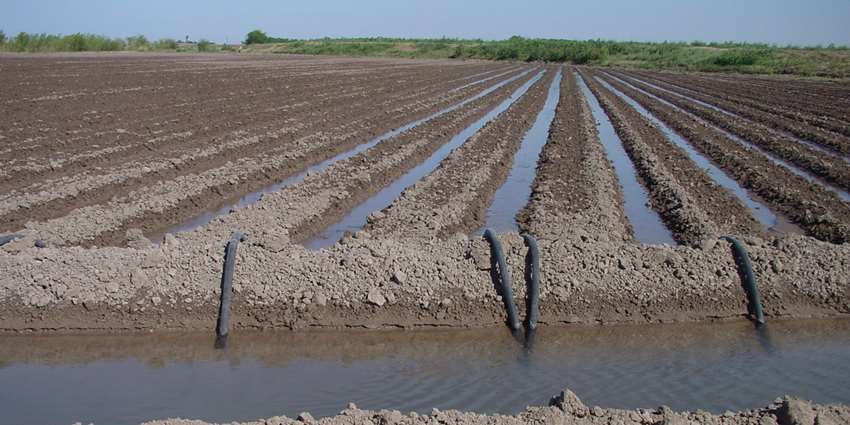The Texas A&M AgriLife Research and Extension Center at Weslaco will host a Rio Grande Valley Drought Contingency Irrigation and Water Supply Workshop on Oct. 25.
The free workshop will be from 9 a.m. to noon in the Hoblitzelle Auditorium at the center, 2415 E. Highway 83. Local experts will provide information on next year’s drought, weather forecasts for the Rio Grande Valley and potential impacts for water deliveries to irrigation districts, municipalities, farmers and producers.
Participants must register by Oct. 23 at tx.ag/RGVdrought, or by contacting Jaime Flores, Texas Water Resources Institute program coordinator at Weslaco, at 956-903-1199 or jjflores@ag.tamu.edu.
Two Texas Department of Agriculture general continuing education units will be offered.
Drought contingency, irrigation strategies discussed
Presenters will include local irrigation district leaders, U.S. National Weather Service meteorologists, Texas A&M AgriLife researchers and more.
Workshop topics will include the following:
- Projected reservoir levels for 2024 – Georgina Bermea, Rio Grande watermaster, Harlingen.
- Precipitation forecast for 2024 – Barry Goldsmith, warning coordination meteorologist, U.S. National Weather Service-Brownsville/Rio Grande Valley, Brownsville.
- Irrigation District forecast for 2024 – Sonny Hinojosa, Hidalgo Irrigation District No. 2, San Juan
- Irrigation and fertilizer strategies for drought – Juan Enciso, Ph.D., AgriLife Research irrigation engineer at the Texas A&M AgriLife center at Weslaco and professor, Department of Biological and Agricultural Engineering.
- New technologies for arid regions, Girisha Ganjegunte, Ph.D., AgriLife Research water resources and salinity management research group leader at the Texas A&M AgriLife Research and Extension Center at El Paso and professor, Department of Soil and Crop Sciences.
“Ag producers, municipal leaders and staff, and water professionals will all benefit from this drought contingency workshop,” Flores said.
There will also be information on fertilization and irrigation strategies to use during a drought and cost-share education programs offered by the Texas State Soil and Water Conservation Board and the U.S. Department of Agriculture – Natural Resources Conservation Service.
This program is partially supported by funding from a Clean Water Act Section 319(h) nonpoint source grant provided by the Texas State Soil and Water Conservation Board and U.S. Environmental Protection Agency.


